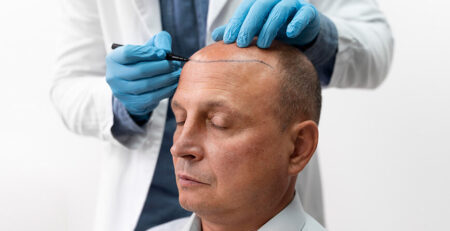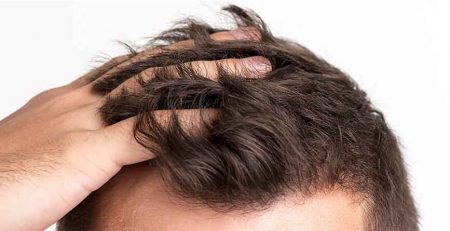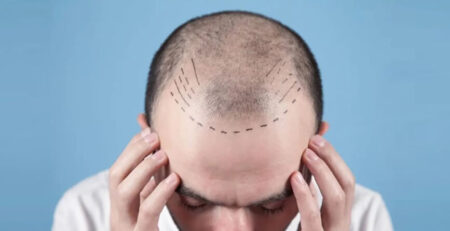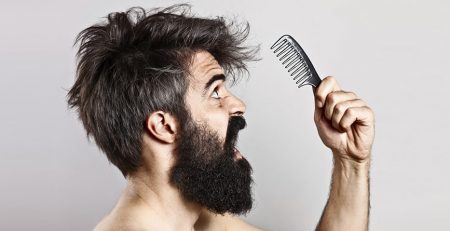Hair Transplant Is A Permanent Solution or Not
Yes! A hair transplant is a permanent solution to hair loss because the transplanted follicles are usually genetically resistant to the hormone DHT (dihydrotestosterone), which is responsible for most forms of hair loss. As a result, the transplanted hair typically continues to grow for the rest of a person’s life.
A hair transplant in Delhi is a surgical procedure that involves extracting the hair follicles from the donor area and implanting them into the recipient area. After a successful hair transplant procedure, some transplanted hair may fall out naturally during the initial healing period in the first three months, which is normal. Once the healing process is complete, the transplanted follicles will initiate hair growth, effectively filling in the previously bald areas on your scalp. This newly grown hair will continue to grow as you age.
What is A Hair Transplant?
A hair transplant in Delhi is an effective way to treat significant hair loss. It involves moving the hair follicles from one part of the body (called the donor area) to another part of the body (called the recipient area). The hair follicles are usually taken from the back of the head; however, in some cases, the hair follicles are taken from the other body parts as well. There are two methods to perform hair transplants: FUE and FUT.
FUT (Follicular Unit Transplant) Hair Transplant Method: In the FUT procedure, the surgeon uses a scalpel to carefully remove a strip of scalp from the back of the head, where hair is more resistant to the hormone DHT (dihydrotestosterone). The strip is dissected under a microscope into individual follicular units called grafts. Then, the surgeon utilizes a needle to create small incisions. The surgeon then meticulously inserts individual hair grafts into these prepared recipient sites.
FUE (Follicular Unit Extraction) Hair Transplant Method: During the FUE procedure, the plastic surgeon in Delhi shaves the hair on the back of the head, which serves as the donor area for the hair follicles. After that, the surgeon carefully separates each individual hair follicle from the scalp. Like the Follicular Unit Transplantation (FUT) procedure, the surgeon proceeds by making small incisions in the recipient area of the scalp. Subsequently, the separated hair follicles are grafted into these tiny incisions. Then, the treated scalp area is covered with bandages for several days to protect and promote the healing of the surgical site.
The hair transplant procedure can last for four hours or even longer, depending on the extent of the treatment. The surgeon removes the sutures after 10 days of surgery. Sometimes, multiple sessions are required to achieve the desired hair fullness.
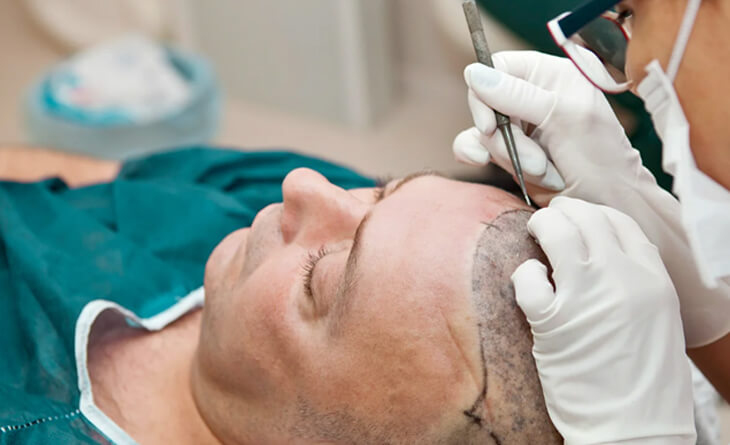
Have questions or want to get started? We are ready to help you with a smile!
Why Are Hair Transplants Permanent?
A hair transplant in Delhi is a permanent solution because the hair follicles are usually taken from areas of the scalp that are genetically resistant to the hormone dihydrotestosterone (DHT).
Hair loss is frequently caused by the hormone DHT in those with male or female pattern baldness (androgenetic alopecia). DHT sensitizes hair follicles in balding areas of the scalp, causing them to shrink and finally cease generating hair. On the other hand, the hair follicles in the donor area towards the back and sides of the hand are typically resistant to DHT. When DHT-resistant hair follicles are transplanted into balding regions, they generate hair since the hordes do not affect them.
The newly transplanted hair starts to grow, gradually filling the previously thinning and balding areas. This emerging hair undergoes development and eventually matches the length and texture of the existing hair. This growth continues throughout the lifetime, extending well into the older years.
However, there are several factors that affect the results of the hair transplant in Delhi. These factors may include:
Surgeon’s Skills and Expertise: The skills and expertise of the surgeon are the major factors that influence the results of a hair transplant procedure. An experienced plastic surgeon in Delhi uses the latest technology to implant the grafts to create a natural hairline and long-lasting results.
Technique Used: The technique used for hair transplant in Delhi can also affect the results. Follicular unit transplantation (FUT) and follicular unit extraction (FUE) are the two primary types of hair transplant procedures. FUT is a more invasive treatment, but the results are more predictable. Although FUE is less invasive, it might be less successful in individuals with minimal donor hair.
The Quality of Hair on Donor Site: The quality of the hair at the donor site greatly impacts the longevity of the hair transplant results. Because hair follicles on the back and sides of the head are more resistant to balding than those on the top, these regions are often selected as the donor areas for long-lasting results.
Recipient Site Preparation: To maximize the success of the hair transplant in Delhi, the recipient site, where the hair follicles are transplanted, must also be carefully prepared. Scar tissue may be removed or the scalp thinned to increase blood flow.
Genetics: Hair loss is also influenced by genetics; thus, it is critical to be informed of your family history before undergoing a hair transplant. The transplanted hair may thin over time if you have a significant hereditary susceptibility to hair loss.
Underlying Medical Conditions and Medication: Certain underlying medical conditions such as diabetes and lupus and several medications can also impact the results of a hair transplant procedure.
How to Maintain the Hair Transplant Procedure Results?
You can take a few steps to enjoy the long-lasting results of a hair transplant in Delhi.
Post-Operative Care: The initial few weeks after hair transplant surgery are of utmost importance, as this is the crucial period for protecting the delicate new hair follicles while they establish themselves. Your surgeon will provide specific guidelines according to your unique situation. These instructions may include refraining from strenuous physical activities, avoiding excessive sweating, avoiding any undue pressure on the scalp, and keeping the transplant area dry.
Avoid the Causes of Further Hair Loss: To ensure the long-lasting success of your hair transplant, avoid factors contributing to further hair loss.
- Protect your newly transplanted hair from harmful elements.
- Protect your scalp from excessive sun exposure, as UV rays can damage hair and scalp skin.
- Avoid smoking because smoking can cause hair loss.
- Use gentle hair products and avoid tight hairstyles that can damage your hair.
- Manage stress levels through relaxation techniques and maintain a nutritious diet to promote healthy hair growth.
- Follow your surgeon’s post-operative care instructions and consider prescribed medications or supplements when recommended.
Avoid Wearing Hat: It is better to avoid wearing a hat immediately after your hair transplant surgery. The plastic surgeon in Delhi will guide you on when it’s safe to resume wearing a cap. Even once you have received clearance, it is recommended to be cautious and choose loose-fitting headwear, such as a lightweight hoodie, to avoid unnecessary pressure on the transplant area. Additionally, exercise extra care when putting on or removing your cap or hat until you have fully experienced the effects of the hair transplant.
By following these guidelines, you may help ensure your transplanted hair continues to grow and lasts for years to come.
Dr. Rajat Gupta
MBBS, MS, DNB(Gen. Surg.),
DNB (Plastic Surgery)
Dr. Rajat Gupta is a board certified plastic surgeon in India with 13 years of experience to back his expertise in the domain of aesthetic surgeries.
Having completed his training from Maulana Azad Medical College and equipped with a thorough understanding of aesthetic needs of people, Dr. Gupta strives to offer the best remedies and cosmetic procedures outfitted with the latest technology to the aspirants in India and across the globe. To book an appointment, call: +91-9251711711 or email: contact@drrajatgupta.com


